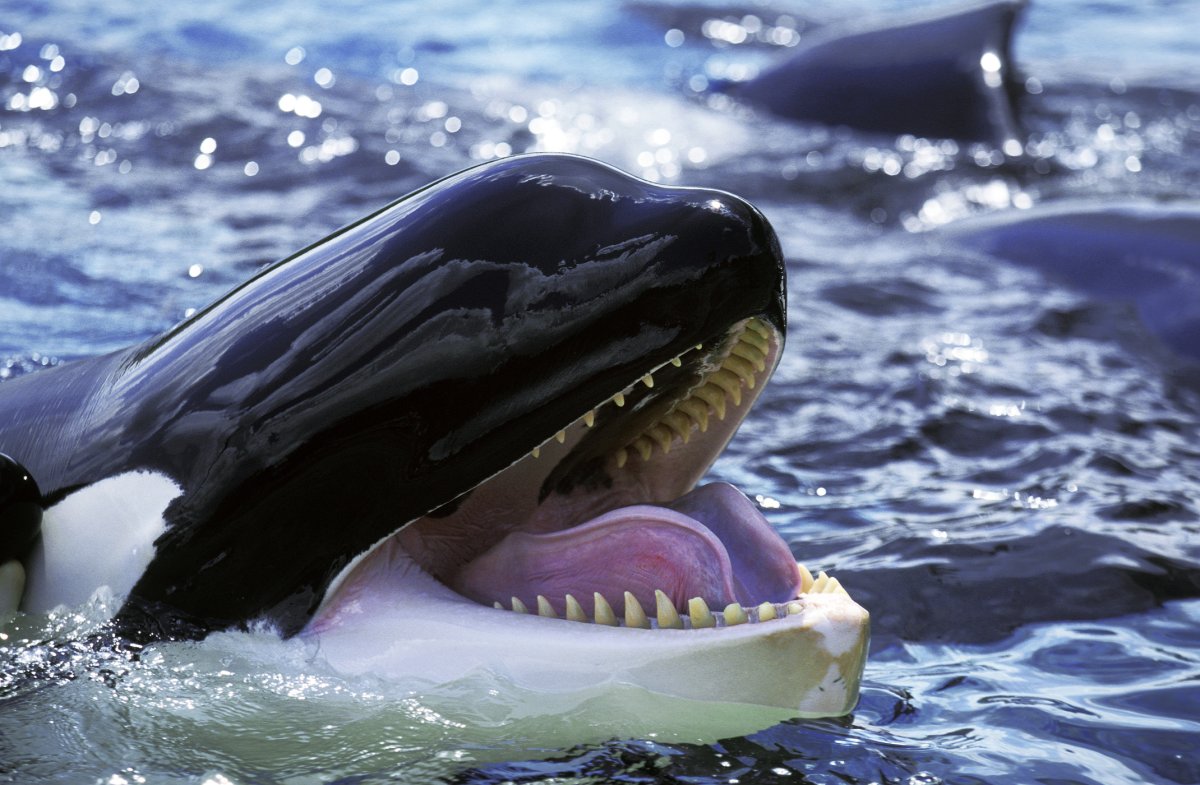A pair of killer whales known to devour the livers of great white sharks may have scared the predators away from the coast of South Africa, experts believe.
Great white shark diving is a key tourist attraction in parts of South Africa, but the creatures have vanished from the waters of False Bay to the country's south-west and the fishing town of Gansbaai further down the coast, where they would to flock to feast on Cape fur seals, fish, other sharks and rays.
The tourist industry has suffered in recent years due to the mysterious decline in great white sharks, as none have been spotted in False Bay since 2019.
Now, a panel of nine international and local experts commissioned by the South African government believe a pair of killer whales who appeared in False Bay in 2015 and specialize in hunting large, coastal sharks, may have caused the drop. They presented their findings at a press conference on Tuesday.
The situation has been unfolding for years. Sightings of killer whale pods in False Bay started to mount in 2009, followed by the arrival of orcas that targeted sharks.
In 2015, scuba divers found several dead sevengill sharks at a dive site at the Table Mountain National Park marine protected area, prompting questions about the cause. Around this time, whale watchers noticed two killer whales visiting the bay, who stood out because their dorsal fins were bent. They were named Port and Starboard, and later linked to the killing of at least five great whites in Gansbaai in 2017.
Since 2015, the pair are known to have visited the area between False Bay and Gainsbaai 41 times, likely prompting great whites to flee and stay away for "extended periods," according to the report. During this time they not only predated great whites and sevengills, but also bronze whale sharks.
Experts examined the remains of the sharks killed in Gansbaai in 2017, and found their wounds resembled those of dead sevengill sharks. They had suffered huge wounds between their pectoral fins. All of their internal organs were intact—but they had no livers. It is thought the whales bit down on the sharks' pectoral fins to tear open their body cavities and devour the fatty, nutrient-rich organ which makes up a third of the animals' weight.
Presenting the findings on Tuesday, Alison Kock, a marine biologist who was on the panel, said tracking data indicated Port and Starboard were to blame for the deaths, The Times reported.
It is possible that the pair have killed even more great whites, and more often than currently known, as not all of the remains would have washed ashore, according to the review.
The panel said these incidents may have had a "profound influence" on the behaviour of the sharks, scaring them away from the region.
Kock said data from the Farallon Islands in the U.S. showed that great white sharks have been known to "stay away for months at a time, even if killer whales only briefly visited" for attacks.
The panel wrote that an investigation into how often killer whales appear off the coast of South Africa and their diet would help to provide conclusive answers about the "disappearance" of great whites.

Uncommon Knowledge
Newsweek is committed to challenging conventional wisdom and finding connections in the search for common ground.
Newsweek is committed to challenging conventional wisdom and finding connections in the search for common ground.
About the writer
Kashmira Gander is Deputy Science Editor at Newsweek. Her interests include health, gender, LGBTQIA+ issues, human rights, subcultures, music, and lifestyle. Her ... Read more
To read how Newsweek uses AI as a newsroom tool, Click here.








